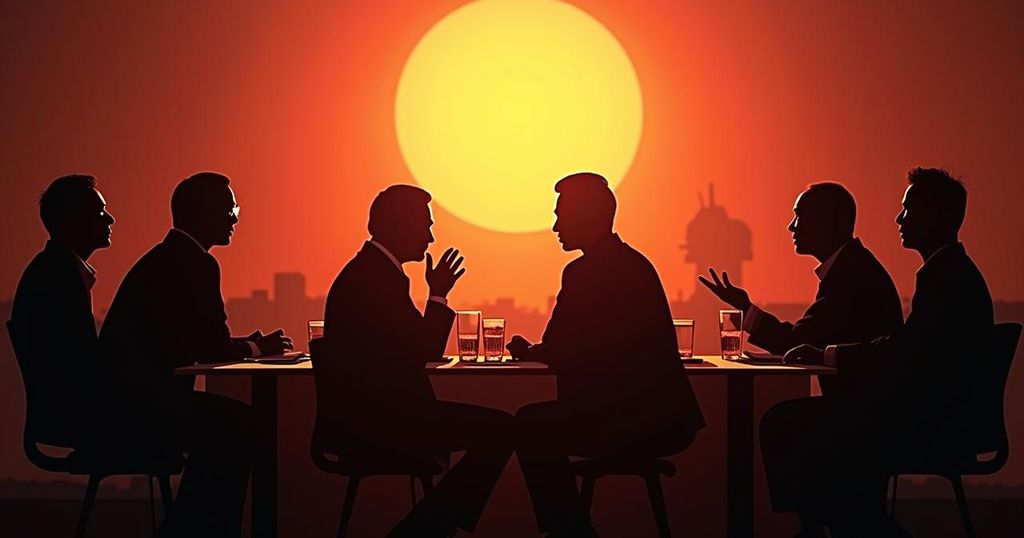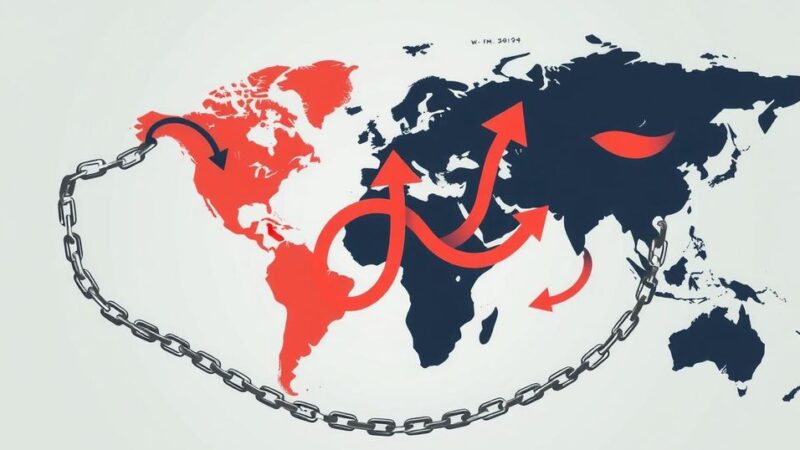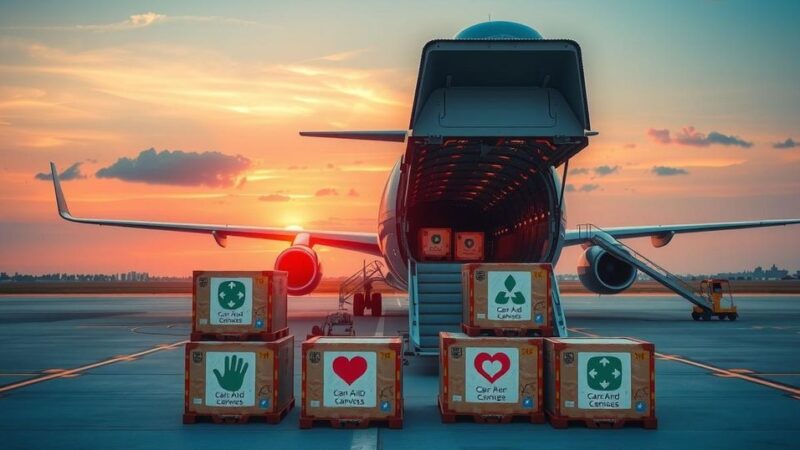ASEAN leaders convened in Vientiane, Laos, to address the civil conflict in Myanmar and maritime tensions in the South China Sea. The summit includes dialogues with global powers like the U.S. and China, reflecting the region’s strategic importance. Discussions will also cover economic issues and climate change, while concerns persist over Myanmar’s stability and electoral plans.
On Wednesday, leaders from the Association of Southeast Asian Nations (ASEAN) convened in Vientiane, Laos, for their annual summit, primarily addressing the ongoing civil conflict in Myanmar and the escalating territorial disputes in the South China Sea. These two pressing issues have significantly challenged ASEAN’s credibility as a cohesive bloc. The summit is poised to expand over two days, engaging dialogue with major global powers, including China, the United States, and Russia, all of which are vying for influence within the Southeast Asian region. The timing of this summit suggests that discussions may extend to the burgeoning conflicts in the Middle East, even though Southeast Asia has only experienced indirect repercussions from these events. Historically, ASEAN has encountered limitations in its influence, even among its own member states. Nonetheless, the forum serves as a crucial platform for fostering engagement and dialogue between superpowers and ASEAN member nations. The ten ASEAN member states — consisting of Indonesia, Thailand, Singapore, the Philippines, Vietnam, Malaysia, Myanmar, Cambodia, Brunei, and Laos — aim to collaborate with additional dialogue partners such as Japan, South Korea, India, and Australia to deliberate on various topics, including economic issues, climate change, and energy sustainability. In his opening remarks, Lao Prime Minister Sonexay Siphandone welcomed new leaders from Thailand and Singapore, emphasizing the importance of cooperation among ASEAN nations and with external partners. Notably, Thailand’s premier, Paetongtarn Shinawatra, is the youngest leader in the bloc at 38 years old, while Singapore’s Prime Minister, Lawrence Wong, recently assumed leadership. Vietnam is represented by Prime Minister Pham Minh Chinh, as the newly appointed President To Lam was unable to attend. Japan’s new Prime Minister, Shigeru Ishiba, is making his first overseas visit during this summit. Meanwhile, U.S. Secretary of State Antony Blinken is participating in lieu of President Joe Biden, with China represented by Premier Li Qiang. Fractured relations between the U.S. and China, particularly concerning alleged aggressive maneuvers by Beijing in the South China Sea, are expected to be pivotal points of discussion for Mr. Blinken, pointed out Dan Kritenbrink, a senior diplomat for U.S. interests in Asia. The claims to this maritime territory remain contentious among several ASEAN members, including Vietnam, the Philippines, Malaysia, and Brunei, in addition to Taiwan. China asserts sovereignty over nearly all of the South China Sea and has intensified its efforts to reinforce these claims, leading to recurrent confrontations with Philippine and Vietnamese vessels in disputed areas. Mr. Blinken is also anticipated to address the situation in Myanmar, specifically urging ASEAN members to maintain pressure on the military rulers following a lack of progress on the bloc’s peace initiative. The U.S. government has expressed concerns about Myanmar’s plans to conduct elections later in the year, arguing that any electoral process should not proceed without substantial progress toward peace and reconciliation. ASEAN’s integrity has been severely challenged by the turmoil in Myanmar, where military forces deposed a democratically elected government in 2021, leading to ongoing violence from pro-democracy guerrillas and ethnic factions. Current estimates suggest that far less than half of the country remains under military control. As host to an informal regional discussion on Myanmar set for December, Thailand aims to coordinate outreach efforts among ASEAN states to formulate a joint response geared towards restoring peace in Myanmar. The summit also marked the participation of Myanmar’s Foreign Ministry permanent secretary, Aung Kyaw Moe, which is significant given the bloc’s previous decision to restrict Myanmar’s political representation in late 2021. The inclusion of a senior representative from Myanmar may indicate a perceived compromise within ASEAN and may raise concerns regarding the bloc’s waning resolve in addressing the crisis, as noted by Lina Alexandra, a senior researcher at the Centre for Strategic and International Studies in Indonesia. She expressed skepticism regarding the likelihood of significant breakthroughs in resolving the conflicts in Myanmar.
The ASEAN summit provides a critical platform for addressing regional geopolitical issues, notably the civil conflict in Myanmar and disputes in the South China Sea, which have called into question the bloc’s effectiveness and unity. The dynamics of Southeast Asia are intricately tied to the interests of global powers such as the United States and China, whose contest for regional influence heightens the stakes of these discussions. The ongoing instability in Myanmar following the coup in 2021 and the maritime tensions surrounding China’s territorial claims illustrate the complexities faced by ASEAN in maintaining cohesion amongst its members and addressing external pressures.
In summary, the ASEAN summit in Vientiane highlights the bloc’s ongoing struggles with issues surrounding the Myanmar civil conflict and South China Sea disputes, which significantly challenge its credibility and effectiveness. The participation of global powers underscores the strategic importance of Southeast Asia amidst increasing geopolitical tensions. While ASEAN aims to foster unity and cooperative dialogue among its members and external partners, the challenges posed by internal conflicts and external influences remain formidable.
Original Source: kdhnews.com







